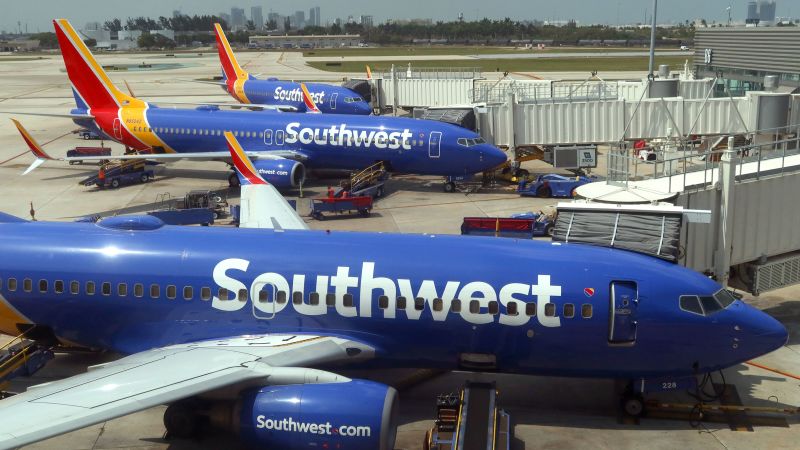Southwest Airlines recently announced that it will be implementing reserved seating on its flights starting in early 2026, with the option for passengers to book those seats in late 2025. This marks a significant departure from the open seating model that the airline has been known for throughout its history. Additionally, the airline will also be introducing premium seating for the first time, offering a new class of seats with more legroom between rows.
The decision to implement assigned seating has been in the works for some time, but part of the reason for the delay in roll-out is the need to reconfigure the seating layout in the planes to accommodate the new premium seating. While reserved seating is available on most other airlines, Southwest has chosen to delay its introduction until 2026. This may disappoint some passengers who prefer assigned seats, as a majority of Southwest customers and passengers who choose other airlines have expressed a preference for assigned seating.
Southwest has faced pressure from activist shareholder group Elliott Investment Management to improve its profitability, leading to the announcement of changes such as assigned seating and premium seating. The airline has also announced plans to form partnerships with foreign airlines to offer passengers the ability to book international flights. The first partnership will be with Icelandair, connecting flights at Southwest’s hub in Baltimore-Washington International Airport.
Despite the changes in seating arrangements, Southwest will continue to allow passengers to check up to two bags for free. This policy of “Bags fly free” has been a major selling point for the airline, with customers citing it as the number one reason for choosing Southwest over other airlines. The airline believes that not charging for checked bags helps its bottom line, as any revenue gains from bag fees would likely be outweighed by a decrease in demand.
Southwest also announced plans to improve its profitability by focusing on enhancing turn-around times when planes are on the ground. This includes avoiding charging for bags, as it can help reduce the time it takes for passengers to board and store carry-on luggage. Additionally, the airline unveiled a $2.5 billion share repurchase plan, which led to a rise in its stock price following the announcement. Southwest’s shares had been relatively unchanged for the year prior to this news.
Overall, Southwest Airlines’ upcoming changes to its business model, including the introduction of reserved seating and premium seating, are part of a larger effort to improve profitability and meet the demands of customers. While the new seating model won’t be fully implemented until 2026, the airline continues to prioritize customer satisfaction by maintaining its policy of allowing two free checked bags. With plans for partnerships with foreign airlines and a focus on on-time performance, Southwest is positioning itself for continued success in the competitive airline industry.


